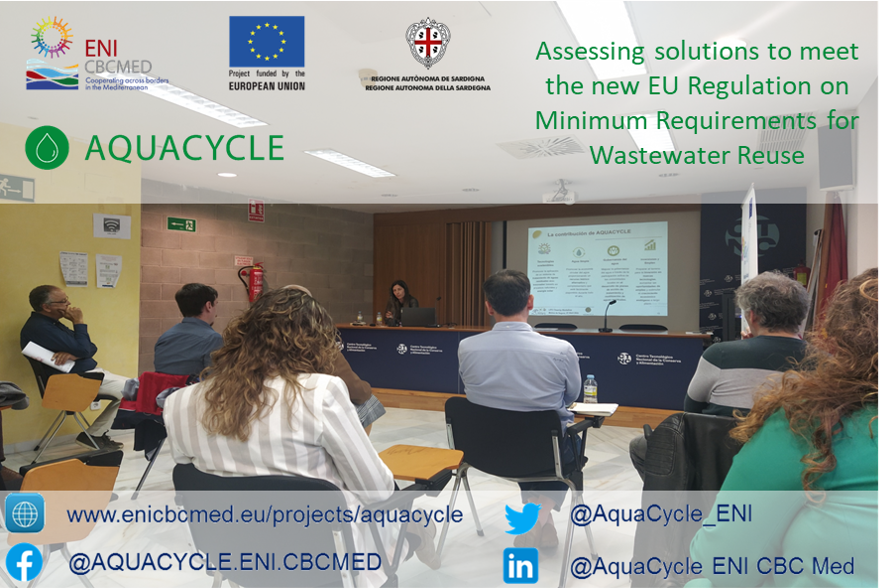AQUACYCLE joins Life funded CleanUp Workshop

Organized by the Life funded CleanUp project, the workshop on Wastewater treatment and regeneration was mainly addressed to researchers and development experts on wastewater treatment. The scope of the event focused on the evaluation of the efficiency of different technologies to meet the new EU Regulation on Minimum Requirements for Water Reuse. The expected outcome of the event was to come up with solutions of how to improve on the efficiency of current tertiary treatment processes in order to meet the requirements of the new EU regulation in Spain and in particular for the region of Murcia where the level of wastewater reuse is among the highest in Europe.
Aside from the ENI CBC Med funded AQUACYCLE project, also other ongoing projects, including several LIFE funded projects which deal with wastewater treatment in the Mediterranean Region, were invited to share their most recent advances and achievements. As a result, not only oxidation technologies but also new adsorption technologies based on recycling wastewater streams were presented during the workshop. Attended by 30 participants, the workshop also assessed solutions for the elimination of contaminants of emerging concern.
The event, which took place on 27 April 2022, was hosted by the National Technology Center for Canning and Food in Spain, and co-organized by the CleanUp Project Consortium.
The AQUACYCLE Partnership was represented at the Workshop by Dr. Isabel Oller, Head of Solar Treatment of Water Unit (Plataforma Solar de Almería, CIEMAT-PSA), who presented the latest results achieved with AQUACYCLE’s eco-innovative wastewater treatment system and by Pedro Simón, Technical Director at the Regional Entity for Wastewater Sanitation and Treatment in Murcia (ESAMUR), who spoke about the treatment and reuse of wastewater in the region of Murcia.
More information about the new EU Regulation on Minimum Requirements for Water Reuse has been covered in AQUACYCLE’s Opinion Article on democratizing spatial decision making in the water sector, which can be accessed via these links in Arabic, English and French.









